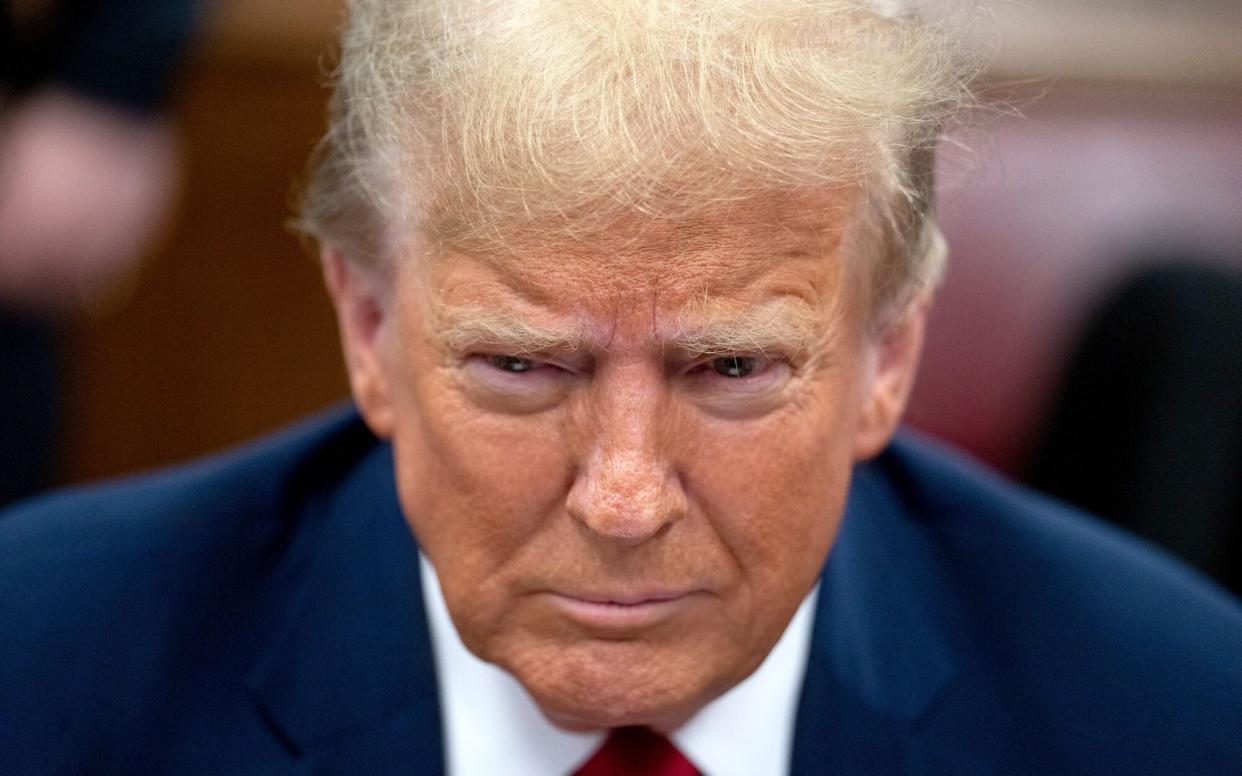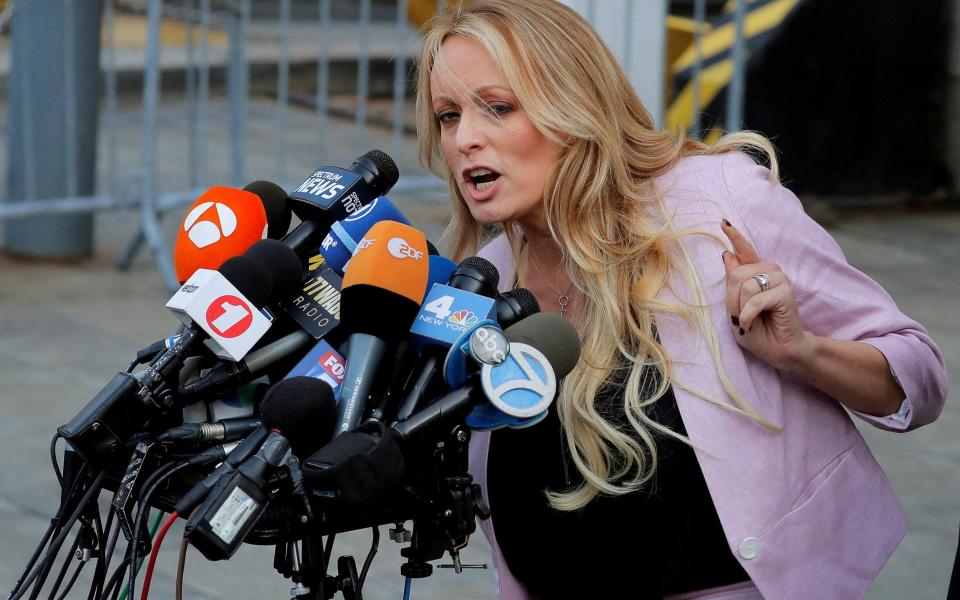President could be immune even for assassinating rival, Trump’s lawyers argue

- Oops!Something went wrong.Please try again later.
Presidents could be immune from prosecution even if they stage a coup or assassinate a political rival, one of Donald Trump’s lawyers argued at the US Supreme Court.
On Thursday, the former president’s legal team claimed Mr Trump is immune from charges of attempting to overturn the results of the 2020 election because this fell within the scope of his official acts.
The highest court in the United States, where conservative judges outnumber their liberal counterparts six to three, appeared to split along party lines as justices probed what actions by a president could be shielded from prosecution.
Noting that presidential orders to the military were considered official acts, Sonia Sotomayor, a Barack Obama appointed judge, asked if a president was entitled to immunity if they ordered the assassination of a corrupt political rival.
“That could well be an official act,” said D John Sauer, one of Mr Trump’s lawyers.
When pressed on whether a president could order a military coup to remain in power, Mr Sauer said this would depend on the circumstances.
Ketanji Brown Jackson, a judge appointed by Joe Biden, suggested that total presidential immunity could turn the Oval Office into “the seat of criminal activity in this country”.
Conservative justice Samuel Alito agreed that a scenario in which a president could legally order a Navy Seal team to assassinate a rival was “implausible”.
But the Republican judge expressed concern about presidents having to worry about being indicted.
He took issue with the argument that legal protections were already in place to prevent “a cycle [of prosecutions] that destabilises the functioning of our country as a democracy”.
The US government had claimed that the role of a grand jury in securing an indictment was an important check. However, Justice Alito claimed prosecutors could convince a grand jury to indict a “ham sandwich”.
During the session, the justices also discussed the idea of sending the immunity question back to lower courts for further fact-finding or potential narrowing of special counsel Jack Smith’s indictment.
Such a move would be a win for Mr Trump, who is trying to stall the case being tried before the Us presidential election on Nov 5.
Rick Hasen, a professor at UCLA School of Law, said although the Supreme Court’s final decision would likely lean towards the justice department “Trump is likely to get what he wants – a further delay of this election subversion case, maybe pushing it to after the election”.
The Supreme Court hearing came as Mr Trump sat in a lower Manhattan courtroom for the third day of his New York hush money trial, which may be the only criminal trial the former US president faces before voters go to the polls.
Mr Trump had asked to skip his New York criminal proceedings for the day so he could sit in on the high court’s special session, but his request to go to Washington was denied by Judge Juan Merchan.
“I think the Supreme Court has a very important argument before it today,” Mr Trump said outside the courtroom. “I should be there.”
The New York jury heard further testimony from Mr Trump’s old friend and former tabloid boss David Pecker.
Mr Pecker, who is not facing any charges, is accused of conspiring with Mr Trump and his former “fixer” Michael Cohen to “corrupt” the 2016 election by burying negative stories in the lead-up to the election.

Thursday’s testimony turned to the payment of Stormy Daniels, a former porn star who claimed to have slept with Mr Trump.
The 34 felony charges being brought against Mr Trump by the Manhattan district attorney centre on a $130,000 (£103,800) payment Cohen made to Ms Daniels to “silence” her.
Prosecutors allege that Mr Trump illegally falsified business records by disguising his reimbursement payments to Cohen as legal fees.
Wearing a black suit, pink shirt and scarlet tie, Mr Pecker, 72, described how he was told Ms Daniels wanted to sell her story about an alleged sexual encounter with Mr Trump for $120,000 when he was having dinner with his wife on Oct 8 2016.
Mr Trump watched intently as Mr Pecker described how Cohen became “upset” with him when he refused to shell out for the story and said “the boss would be furious with me”.
Mr Pecker said Ms Daniels’ story could have been “very damaging” and he advised Cohen to buy it and “take it off the market”.
The former tabloid boss also said Cohen “screamed” down the phone at him after he pulled out of a deal to sell Mr Trump the rights to former Playboy model Karen McDougal’s story of an affair with Mr Trump after consulting with a company lawyer.
“He was very angry, very upset, screaming, basically, at me,” Mr Pecker said of Cohen.
The trial continues.

